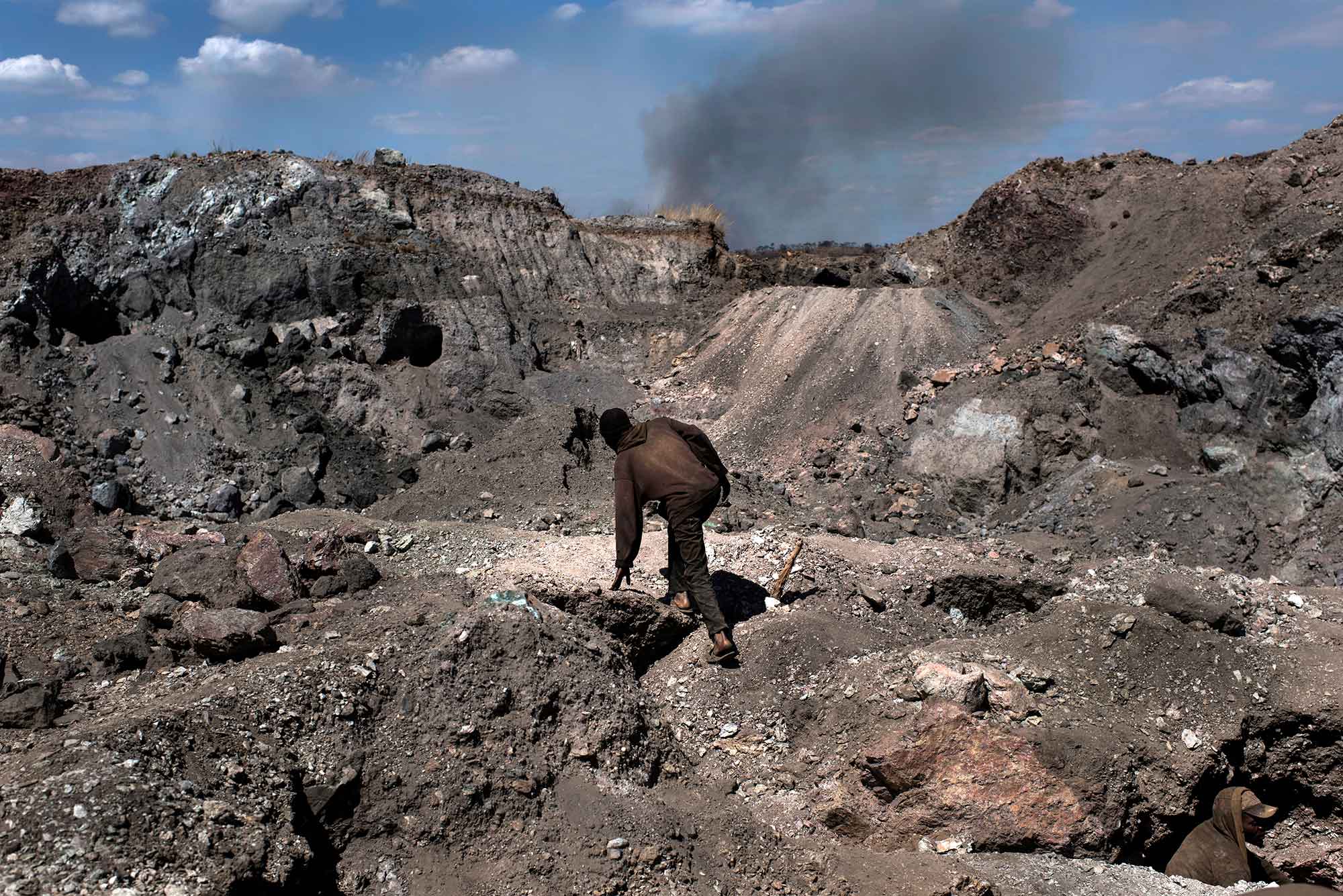Smartphones and laptops are devices entwined in our daily lives. But have you ever wondered what they're made of or how they end up in consumers’ hands?
Millions of us enjoy the advantages of new technologies every day but how many of us ask how they are made? It's time we payed attention because the social and ecological consequences are hugely important.
The phone or the computer on which you are reading this article very likely contains cobalt. It's an indispensable mineral used to build lithium-ion batteries that supply power for our smartphones, computers and electric cars.
Cobalt comes mostly from the Democratic Republic of Congo (DRC), a politically unstable country, that supplies 60 % of the world's cobalt consumption.
Nowadays, pretty much everyone needs cobalt. High tech giants such as Apple, Samsung, Microsoft, Sony, Lenovo, Huawei as well as automakers like Tesla and BMW whose electric car production is continuously increasing, have a heavy demand for cobalt. According to an article by the Washington Post, mobile phones contain 45 to 10 grams of cobalt, 30 grams for laptops and 4 to 8 kilograms for electric cars.
The problem is the source of this cobalt and how it is extracted by mining companies. In 2016, Amnesty International said that cobalt used by smartphone makers such as Apple, Samsung and Sony originates from conflict zones. This means workers' rights are neglected, child labour is promoted and the ongoing conflicts lead to the death of thousands of people. Along with this, cobalt mining has significant environmental impacts.
How does cobalt mining affect the environment?
Generally speaking, mining damages the environment because it causes erosion and loss of biodiversity. Extracting cobalt requires land use changes such as clearing and digging.
Chemicals are also used to obtain the precious minerals which means cities, towns and villages located near the mine face air pollution because of high concentration of toxic metals. Local people are very likely to contract lung diseases and respiratory problems such as asthma, pneumonia or declined lung functions.
Another environmental impact caused by cobalt mining is water and soil pollution. Because of discharges of wastewater, water is unsafe for consumption while people are widely dependent on water. The same issue happens with polluted soil and agriculture.
But mining cobalt not only has local consequences but also a larger ecological footprint in terms of transportation cost and pollution. In fact, mines in Congo are only the first step of the supply chain. Afterwards, a great proportion of the cobalt ends up in multiple refineries and battery manufacturers in Asia. For one phone battery, not even the phone itself, we are talking about a huge transportation footprint, emitting thousands of tonnes of carbon.
Cobalt extraction not only harms the environment but impacts local communities as well. According to the Washington Post investigation, cobalt extraction mostly relies on "artisanal miners". The 2016 International Amnesty's report denounces the unhuman, unsafe and poor conditions in which these miners have to work. Lots of them do not wear basic protection materials such as gloves, work clothes or even a mask. Injury, collapsed tunnels and fire are common risks that make working conditions incredibly dangerous. Between September 2014 and December 2015, 80 miners died in RDC according to Amnesty International. Meanwhile their pay is extremely low: between $2 and $3 per day.
Image: A "creuseur," or digger, climbs through a cobalt and copper mine in Kawama, Congo, in June
What are companies doing to help?
Regarding human rights abuses, some companies connected to cobalt conflict – including Apple, Samsung and Microsoft – have since looked forward to cleaning up their supply chains so they no longer include conflict minerals. One week ago, Apple was ranked in a report published by the Enough Project as a "clear leader" in its efforts to source conflict free minerals.
But can cobalt mining be sustainable? According to Saleem H. Ali Director of Centre for Social Responsibility in Mining at University of Queensland "mining is inherently unsustainable" because it destroys and harms the biophysical environment. As we previously explained, it inflicts social and economic damage. For all these reasons, mining should be stopped and not expanded. But how will we feed our growing hunger for electronic devices and therefore cobalt if we cut back on mining?
Regarding how the cobalt is sourced, even though some companies such as Apple pledged to stop mining for iphone materials, there are still no proper recycled alternatives for cobalt. And cobalt demand is likely to increase in the future opening up new environmental and social risks. That is why recycling of cobalt need to rise in order to mitigate the environmental and human harm related to it.
So what can consumers do?
As consumers of mobile phones and laptops, we play an important role. It is important to point out that it's not about ditching our mobile phones and laptops all together. This is obviously not a realistic option. Nevertheless, being aware of what our electronics are composed of is crucial. For instance, you can do a quick Google search or look on the company's website to find out whether or not any policies exist in regard to conflict minerals. You can also look at the ethical rankings of your products here:
As consumers, we have the duty to have responsible practices. Even though today it is still very difficult to have a conflict-free mobile phone, you can opt for the Fairphone, an ecologically responsible smartphone with materials traced from conflict-free mines.
Also, given the shipping miles and the pollution related to transporting cobalt, as consumers, we can reduce our consumption of devices like smartphones. We should avoid purchasing a new phone until the ones we have no longer work. We should ask ourselves if we really need to buy the newer model every year knowing the complex process behind it. And if you must buy another one but yours is still working, find a family member or a friend who needs a phone. One man's trash is another man's treasure!
And when it dies, we can recycle them. Don't put them in landfill! You can dispose of your mobiles phone at the shops that sell them and if you have an iPhone, you will find all the information about recycling on this website.
As consumers we all have a responsibility to know what we are buying and to try to live with the least impact on the planet, even when it comes to our technology!
Mathilde Lebon is an island girl from La Réunion in Indian Ocean. She is passioned about womens empowerment, sustainability and renewable energy. You will often find her absorbed in biodiversity conversation projects. Mathilde loves sharing her interest and love for nature by increasing awareness. You can see more of her video work here
Read this next: Inside Liddell: Our Visit To A Coal Fired Power Station
WE ARE WOMEN AND GIRLS FROM EVERY CORNER OF THE PLANET BUILDING A LIFESTYLE REVOLUTION TO FIGHT THE CLIMATE CRISIS, WILL YOU JOIN THE MOVEMENT?


